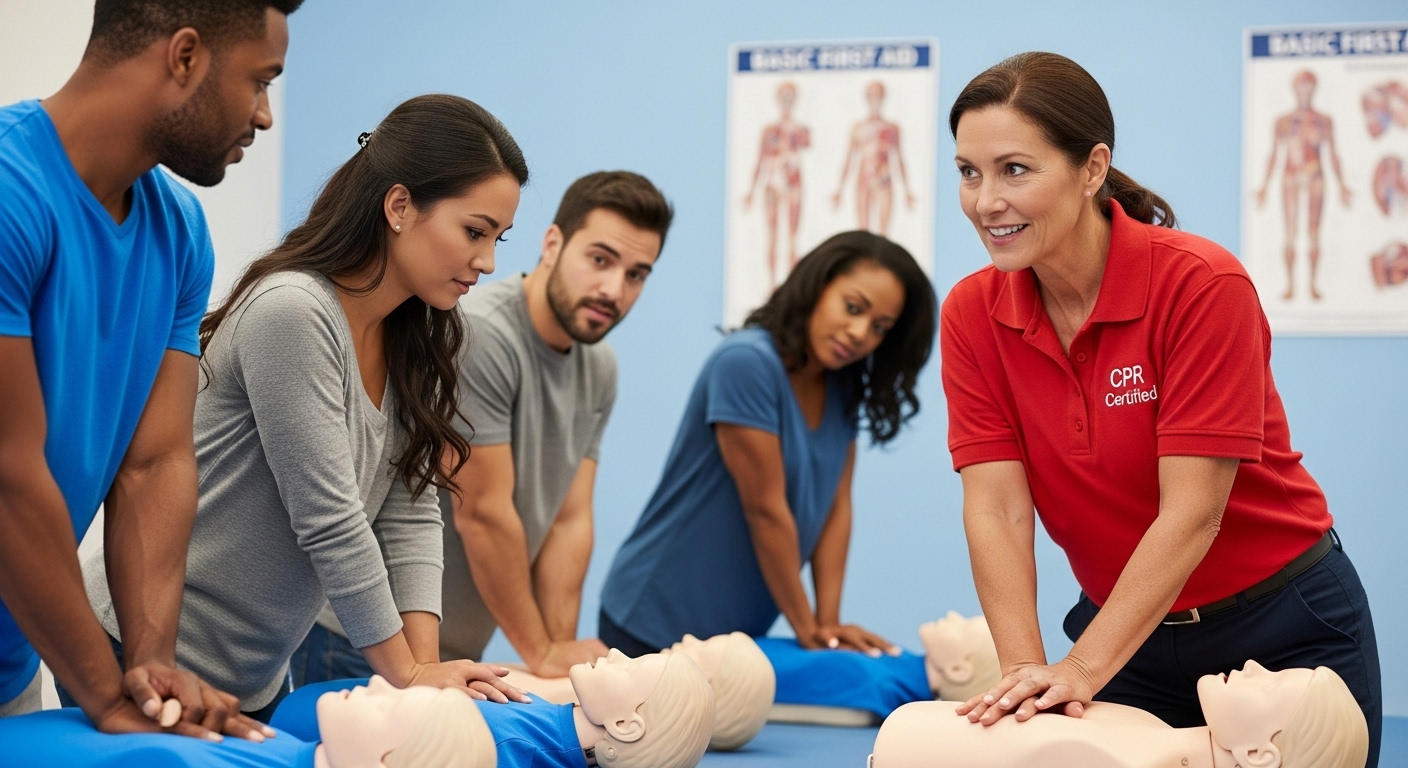Millions of people grapple with addiction every single day. Perhaps you know someone caught in its grip, or maybe you are facing this challenge yourself. Addiction does more than just affect one person; it rips apart families and strains entire communities. It is a powerful force that can steal joy, health, and futures. Finding a way out can feel overwhelming, like being stuck in a deep, dark pit.
But there is a clear path toward healing and long-term sobriety. Addiction recovery programs offer a proven way forward. These programs are not just a temporary fix. They provide the tools, support, and understanding needed for real, lasting change. This guide will explore exactly why rehab works, showing how it helps individuals reclaim their lives from addiction.
Understanding Addiction: The Disease Model
What is Addiction?
Many people wrongly believe addiction is a personal failing or a lack of willpower. This simply is not true. Addiction is a chronic, relapsing brain disease. It changes the way your brain works, making it hard to stop using substances even when you want to.
Substances hijack the brain’s reward pathways. They flood the brain with feel-good chemicals, like dopamine. Over time, the brain adjusts to these high levels, needing more of the substance just to feel normal. This leads to the compulsive urge to use, changing brain chemistry in powerful ways. Things like your genes, your home life growing up, and any past mental health issues can also raise your risk for addiction.
The Cycle of Addiction
Addiction often traps individuals in a harsh cycle. First, there is the overwhelming urge to use, a compulsion that feels impossible to fight. This craving takes over a person’s thoughts and actions. They feel like they must use, no matter the situation.
Next, people often lose control over their substance use. They might tell themselves they will only have one drink or a small amount. But soon, they find they cannot stop. This loss of control can lead to serious problems in every part of life. The consequences are often devastating, harming physical health, mental well-being, and precious relationships. Financial ruin and legal troubles also frequently come along with unchecked addiction.
The Core Components of Effective Rehab Programs
Medically Supervised Detoxification
The first step in many addiction recovery programs is medically supervised detoxification. This process is essential for safe withdrawal from substances. Trying to stop on your own can be dangerous, leading to severe withdrawal symptoms or even life-threatening complications.
Medical staff watch over individuals around the clock during detox. They can give medicines to ease discomfort and prevent problems. This expert care makes the withdrawal process much safer and more bearable. Detox is the crucial first step, getting the body clean and ready for deeper therapy and recovery work. It prepares you for the journey ahead.
Evidence-Based Therapeutic Modalities
Rehab programs use therapies proven to help people overcome addiction. These methods are backed by science and show real results. They help individuals change thought patterns and behaviors linked to substance use.
Cognitive Behavioral Therapy (CBT)
CBT teaches you how to spot and change negative thoughts. These thoughts often lead to harmful actions, like using drugs or alcohol. Through CBT, you learn healthy coping skills for triggers and cravings. You gain power over your reactions.
Dialectical Behavior Therapy (DBT)
DBT focuses on managing strong emotions and handling distress. It also helps improve relationships. This therapy includes mindfulness practices, which teach you to stay in the present moment. DBT gives you tools to deal with life’s ups and downs without turning to substances.
Motivational Interviewing (MI)
Motivational Interviewing helps people find their own reasons for change. It is a gentle, collaborative approach. Instead of telling someone what to do, MI helps them see why they want to get better. This builds strong inner drive for recovery.
Individualized Treatment Plans
One major reason why rehab works is its tailored approach. No two people are exactly alike, so their recovery journey should not be either. Successful rehab programs create a plan just for you.
Staff do thorough checks when you first arrive. They learn about your past, your needs, and any other health issues you might have. Many people with addiction also have mental health conditions, like depression or anxiety. The rehab team considers all these factors. Your plan can also change as you get better, making sure it always fits where you are in your recovery.
Beyond Therapy: Holistic Support in Rehab
Addressing Co-Occurring Disorders
Rehab centers understand that addiction rarely comes alone. Many people struggling with substance use also deal with mental health conditions. These can include anxiety, depression, bipolar disorder, or trauma. This is called a “dual diagnosis.”
Treating both addiction and mental health at the same time is key for lasting sobriety. If only one issue is addressed, the untreated condition often triggers a return to substance use. Integrated care helps you learn healthy ways to manage both your addiction and your mental health symptoms. This combined approach is vital for long-term success.
Building Life Skills and Coping Strategies
Beyond just stopping substance use, rehab helps you build a new life. A big part of this is learning relapse prevention strategies. You learn to spot your triggers and high-risk situations. Then, you practice healthy ways to deal with them instead of using.
Stress management is another important skill taught in rehab. You might learn techniques like deep breathing, exercise, or mindfulness. These tools help you cope with daily pressures without needing substances. Some programs also offer support for getting back into work or education. This helps individuals rebuild their lives and find purpose.
Peer Support and Community
Feeling connected to others is a strong part of why rehab works. Group therapy sessions bring people together who share similar struggles. You can learn from others’ experiences and realize you are not alone. This shared journey creates a powerful bond.
Many rehab programs also introduce people to mutual support groups like Alcoholics Anonymous (AA) or Narcotics Anonymous (NA). These groups provide a loving community beyond the rehab walls. Being part of a supportive group helps fight feelings of isolation and shame, which often come with addiction. This sense of belonging is a lifeline in recovery.
The Long-Term Impact of Rehab Programs
Sustaining Sobriety: Post-Rehab Care
Finishing a rehab program is a big step, but it is just the beginning of lifelong recovery. Sustaining sobriety takes ongoing effort. Good rehab centers help you create an aftercare plan. This plan might include outpatient programs, where you live at home but still attend therapy sessions. Some people move into sober living houses, which provide a supportive, substance-free environment.
Many centers also have alumni programs. These programs keep graduates connected to the rehab community and each other. They offer continued support and a network of sober friends. It is important to remember that relapse can be a part of some people’s recovery journey. But rehab teaches you strategies to manage a slip, preventing it from becoming a full-blown relapse. This prepares you for any bumps in the road.
Measuring Success: What Does “Working” Look Like?
So, how do we know rehab really works? Studies show that structured addiction recovery programs significantly reduce relapse rates. People who complete rehab are much more likely to stay sober than those who try to quit on their own. This is clear statistical evidence that these programs are effective.
Beyond sobriety, success looks like an improved quality of life. People often see better physical health, more stable mental well-being, and repaired relationships. Many find new jobs or go back to school. Rehab helps individuals grow in amazing ways. They gain a new outlook on life and a stronger belief in themselves. This transformation allows them to live a full and meaningful life.
Conclusion
Addiction recovery programs truly offer a powerful pathway to a life free from substance use. They work because they provide professional guidance, backed by science-based therapeutic interventions. From safe medical detox to individual and group therapies, every part of rehab is designed to help you heal. The comprehensive support, including help for mental health and learning new life skills, builds a strong foundation. The community and peer support battle isolation, giving you a sense of belonging.
If you or someone you care about is battling addiction, remember that help is available. Recovery is not only possible but it happens every single day. Taking that first step toward professional help can change everything. You deserve a fulfilling life, free from the chains of addiction.
ALSO READ: Alkaline Water Ionizer vs. Bottled Alkaline Water: Which Is Better?










